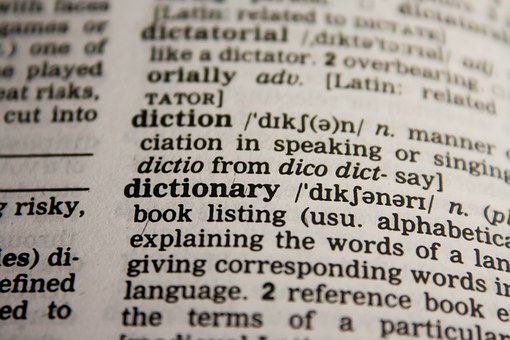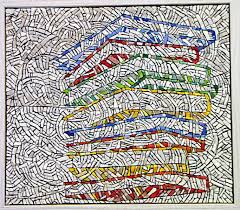5 Tips To Improve Executive Function Skills

Many children with reading difficulties like dyslexia also display signs of having trouble with executive function. Executive function, simply put, is a set of skills that relate to working memory, task completion, flexible thinking, and emotional regulation. Executive function skills allow us to plan, organize, and execute a task. Every task from something as simple as putting a sock into a dirty hamper to those that are more complex like cooking a Thanksgiving dinner requires the use of executive function skills. Trouble with executive function skills can make it hard to focus, follow directions (even those that are step by step), and can cause difficulty with emotional regulation. Children who struggle with executive functioning may:
- Have trouble completing tasks, even simple ones
- Often forget information they just heard or read
- Have difficulty following a sequence of steps or multi-step directions
- Have issues transitioning from one task to another
- Get excessively emotional
- Have trouble with time management
- Be unable to keep track of their belongings
One of the main consequences of executive functioning issues, particularly for students with dyslexia, is that it can take longer for them to learn new information, retain, and process or manipulate this information.
While executive functioning issues can be frustrating for many parents, there are ways to help encourage their development. Here are five ways you can help your child learn, develop, and improve their executive functioning skills:

- Teach the skills they are lacking, do not expect them to simply observe and internalize them. For example, if your child struggles with time management, explicitly teach them how to use a planner or set up a color coded schedule to help them block their time throughout the day.
- Make their tasks shorter. Many children with executive functioning issue struggle with task initiation. If they struggle to get started, a lengthy task will seem daunting and will not provide an incentive to start. If you want your child to clean their room, start with something simple like put their dirty laundry in the hamper.
- Make the steps in multi-step tasks explicit. Rather than telling your child something vague like “go clean up your room,” give them clear, short, manageable steps with an end in sight for each one and a measurable goal. For example, you may ask them to:
- Put their dirty laundry in the hamper
- Pick up their stuffed animals
- Make their bed
- Put their books on the bookshelf
- Put their toys in the toy box
Each of these steps is explicit and short. By breaking it down for your child you make it more likely that they will succeed.
- Make their tasks appealing. You can attempt to turn their tasks into games by challenging them to pick up a certain number of toys during a set amount of time, having them draw a chore from the chore jar, or playing music while they work. With homework, giving them a choice can also be very powerful. For example allowing them to choose whether they want to work on reading or math first gives them more ownership and makes them more likely to be able to complete their task.
- Play games to help build executive function skills. Jenga is a great game to help with executive functioning skills because it requires self-monitoring, flexible thinking, and impulse control. It also requires them to control their emotions if they lose (although in some cases this is easier said than done). Games like Distraction and MindTrap can also help with strategic and flexible thinking. For a longer list of games that can help build executive functioning skills, check out the list here.

If your child’s executive functioning deficits are impacting their reading skills, it is important to also get them Structured Literacy tutoring. Children who receive explicit and systematic instruction will have a strong advantage in committing challenging phonetic patterns to long term memory for automatic recall while reading, spelling and writing.
Our reading clinicians at RW&C use explicit strategies to help students with reading difficulties and executive functioning issues. Our program meets the standards set by the International Dyslexia Association and we know that it works. Contact us today for more information and find out how we can help your child succeed.
RW&C, LLC
www.rwc4reading.com
Resources:
Smart but Scattered by Ped Dawson, EdD, and Richard Guare, PhD
images from pixels.com




 If you were asked to name a pivotal year in school, one that influenced future academic success for years, what would you say? Junior high, senior year of high school, the first year of college? While these are all important landmarks in an individual’s education, I would argue one of the most critical years is third grade.
If you were asked to name a pivotal year in school, one that influenced future academic success for years, what would you say? Junior high, senior year of high school, the first year of college? While these are all important landmarks in an individual’s education, I would argue one of the most critical years is third grade. disabilities who receive appropriate intervention focused on accuracy and fluency by the end of 2nd – 3rd grade will usually catch up (Torgesen et al., 2003). Unfortunately, students who get appropriate intervention after 3rd grade do not catch up in terms of reading fluency. This group of students may get close to their peers in accuracy; however, fluency, while it improves over time, remains behind peers and presents a significant reading impediment.
disabilities who receive appropriate intervention focused on accuracy and fluency by the end of 2nd – 3rd grade will usually catch up (Torgesen et al., 2003). Unfortunately, students who get appropriate intervention after 3rd grade do not catch up in terms of reading fluency. This group of students may get close to their peers in accuracy; however, fluency, while it improves over time, remains behind peers and presents a significant reading impediment. While these are all great ways to help your child who struggles to read, the best and most important thing you can do as a parent is getting your child the
While these are all great ways to help your child who struggles to read, the best and most important thing you can do as a parent is getting your child the  When students struggle with reading and literacy, it is imperative that their reading intervention go hand in hand with writing and explicit spelling instruction. Often, in the classroom, it is the case that spelling instruction is an after-thought and is confined to spelling drills and memorization (Birsh, 2005). However, for students who struggle with
When students struggle with reading and literacy, it is imperative that their reading intervention go hand in hand with writing and explicit spelling instruction. Often, in the classroom, it is the case that spelling instruction is an after-thought and is confined to spelling drills and memorization (Birsh, 2005). However, for students who struggle with  I cringe thinking about some of my first parent/teacher conferences when I told parents “there is always spelling check.” I adopted the common classroom philosophy that if students were immersed in print, and taught to read, they would somehow magically learn to spell (Birsch, 2005).
I cringe thinking about some of my first parent/teacher conferences when I told parents “there is always spelling check.” I adopted the common classroom philosophy that if students were immersed in print, and taught to read, they would somehow magically learn to spell (Birsch, 2005).

 Our reading clinicians also have extensive knowledge of child development and know when to correct spelling and when to allow children to rely on inventive spelling that is based on their own internalized understanding of phonemes and graphemes. This allows us to teach more than memorization because we teach the skills that students are developmentally ready for and not skills that are above their level. Just like in reading, in spelling it is “not the age, it’s the stage.” Students should not be pushed to memorize spelling patterns they are not ready for because it will ultimately do more harm than good.
Our reading clinicians also have extensive knowledge of child development and know when to correct spelling and when to allow children to rely on inventive spelling that is based on their own internalized understanding of phonemes and graphemes. This allows us to teach more than memorization because we teach the skills that students are developmentally ready for and not skills that are above their level. Just like in reading, in spelling it is “not the age, it’s the stage.” Students should not be pushed to memorize spelling patterns they are not ready for because it will ultimately do more harm than good.

 In order to serve the student and increase their reading skills, the correct diagnosis of the issue is essential. This is why the reading clinicians at RW&C give each student a variety of
In order to serve the student and increase their reading skills, the correct diagnosis of the issue is essential. This is why the reading clinicians at RW&C give each student a variety of  Coming from a classroom background, I know that often upper-grade teachers are not trained in early literacy and often do not have the resources that students need to master early reading skills. If your older child struggles with reading, they may not get the help they need in school.
Coming from a classroom background, I know that often upper-grade teachers are not trained in early literacy and often do not have the resources that students need to master early reading skills. If your older child struggles with reading, they may not get the help they need in school. In previous blogs, we’ve discussed the importance of
In previous blogs, we’ve discussed the importance of  As your child gets older and moves into upper elementary and middle school, you can encourage them to use post it notes as they read to ask questions, record unknown vocabulary words, and note any surprising information. This can be a great way for them to interact with the text and for you to monitor their understanding. Plus almost all kids love getting to use post it notes so it may even motivate them to read more.
As your child gets older and moves into upper elementary and middle school, you can encourage them to use post it notes as they read to ask questions, record unknown vocabulary words, and note any surprising information. This can be a great way for them to interact with the text and for you to monitor their understanding. Plus almost all kids love getting to use post it notes so it may even motivate them to read more.